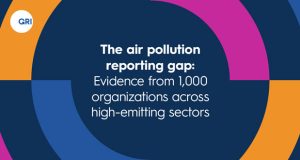TRANSPORT AND AIR QUALITY
The impact of vehicle emissions on health and air quality has received extensive media coverage in recent times. In response, the SFMI emphasises the need for FMs to address these issues. Practices such as reducing idling, promoting eco-friendly driving styles, and avoiding congested areas are encouraged to improve air quality while generating social value. To score highly, FMs must demonstrate their efforts in measuring exhaust fume impacts, engaging in air pollution reduction measures (with a focus on social value), and linking electric vehicle targets to social value creation.
Transport includes both business vehicle fleets used for day-to-day operations and employees commuting to the workplace. Both have an impact on global climate change and local air pollution, with overall transportation contributing 34 per cent of UK carbon emissions in 2022.
While the adoption of electric vehicles is increasing, fossil fuelled vehicles remain dominant on our roads. Admittedly motor vehicles have generally become more fuel-efficient over time – largely due to EU regulation – however, increased efficiency does not eradicate the problem.
FM can be a mobile workforce, with for example, hard service FM providers relying on their fleet of vehicles; and catering requiring food distribution. Vehicles can often be one of the largest impacts of an FM provider at over 90 per cent of carbon emissions(iii). FMs may also need to provide employees with transport options as part of soft services. The good news is that emissions are understood and reported publicly.
FMs need to firstly understand what travel is necessary and what can be performed remotely through technology. Managing the transport options at a business facility using low carbon options would help to reduce transport impact as well as understanding commuting habits of employees. City centre buildings, for example, are obviously more likely to be reached by public transport so motor vehicles would be used predominantly for operations.
The cost of moving a whole fleet to electric vehicles in one go could be prohibitive, so FMs should consider replacing with electric models when they would normally change vehicles.
GOVERNANCE AND RISK MANAGEMENT
Diversity is not the only strategic issue gaining attention in the SFMI assessments. Risk management criteria are being strengthened to incorporate non-financial sustainability risks at both corporate and contract levels. Best practices now require scenario testing of climate risks relevant to the FM business unit, with demonstrated results driving organisational behavioural changes. This integrated approach ensures that sustainability risks are effectively managed and helps in the transition towards more sustainable business operations.
A CALL FOR BUSINESS TRANSFORMATION
These updates to the Index intend that the focus should extend beyond mere reporting to drive transformative change. FM organisations possess the potential to support customers in improving their own businesses while becoming restorative in nature. The SFMI acts as a crucial mechanism for the sector to achieve this goal. Partnerships with the SFMI enable organisations to showcase their leadership in sustainability and embed sustainable practices into their core business operations.
As sustainability becomes increasingly vital for FM organisations, the SFMI assessments for 2023 raise the bar by prioritising mental health, wellbeing, biodiversity, and carbon-related initiatives. With regulatory requirements and greenwashing concerns on the rise, verified data and evidence of sustainable practices are now essential. By highlighting the social aspect of ESG and broadening the environmental focus, the SFMI ensures that FMs are equipped to meet industry standards and make meaningful contributions to a sustainable future.
REFERENCES
(i) The SFMI assessments serve as the industry benchmark for FM organisations. Currently evaluating FM partners that constitute around 15 per cent of the UK FM Market, the SFMI provides a comprehensive evaluation of sustainable practices.
(ii) https://bit.ly/3OoIJie
(iii) https://bit.ly/3OybWau
Link to 23 ESG update and report:https://bit.ly/44XApNs






